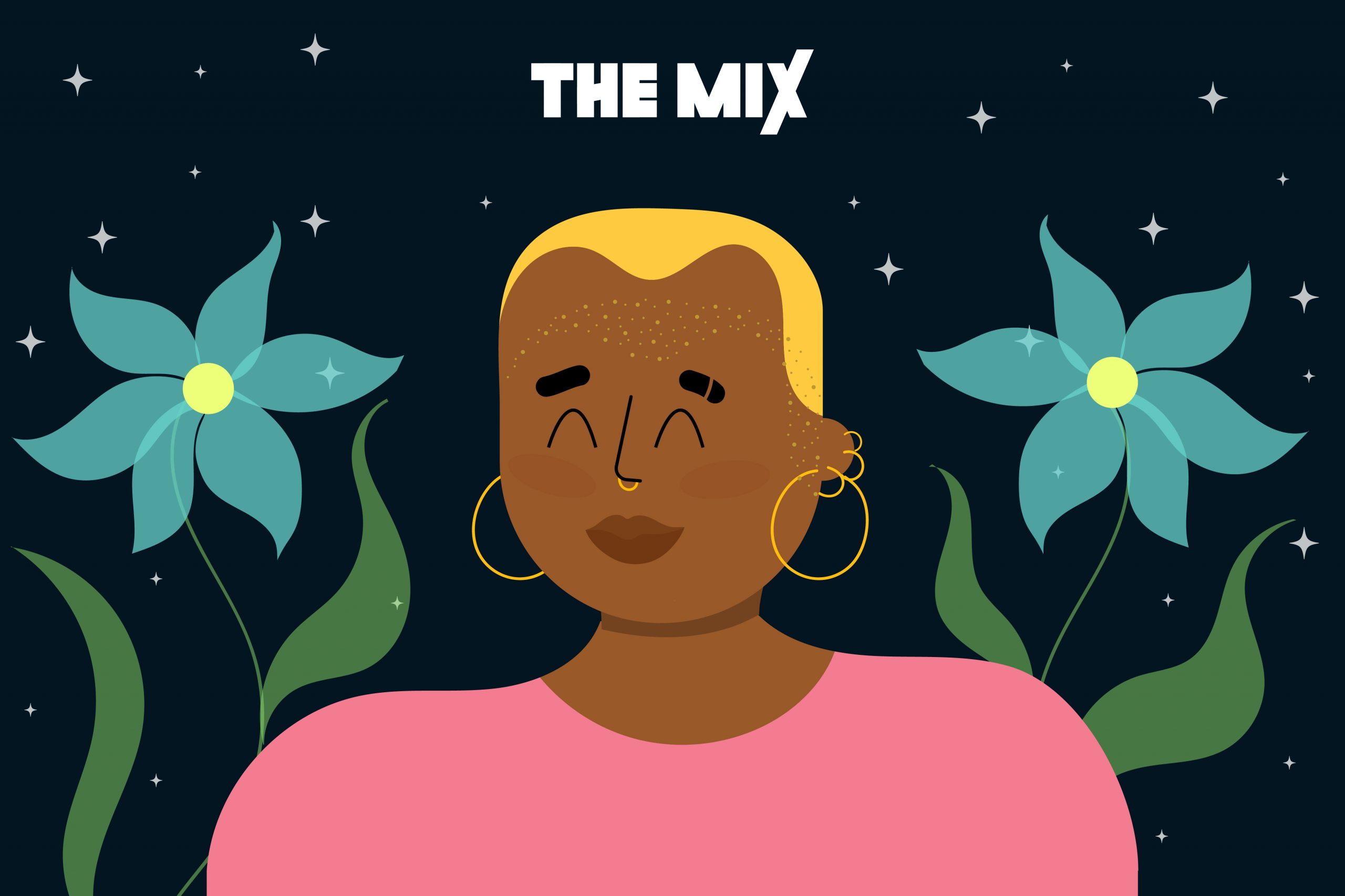How I changed my pronouns

A young volunteer at The Mix wrote this piece about exploring and discovering their gender identity, and how they changed their pronouns.
Gender identity can be confusing or daunting to figure out. I’m going to share with you my experience of realising I am Non-Binary, the importance and meaning of pronouns, and tips on coming out!
Head to Gendered Intelligence to find out more about all things gender-related.
Read this guide by The Proud Trust to find out more about what being Non-Binary is.
My experience of realising I’m Non-Binary
For a long time, I felt a lot of discomfort in myself and never knew how I wanted to express myself. The idea of my gender being regarded as a woman made my stomach and heart feel heavy and knotted, however I also knew I wasn’t a guy. I think Non-Binary is the best term to describe it; to me it’s about how I simply feel I am a human rather than a man or woman.
I still relate to the experience of women as that is how I was raised and am usually perceived, but that is not how I see my gender. I also went through a lot of trying to dress more masculine or more feminine which in the end made me realise how I look doesn’t matter as long as I feel comfortable and confident.
Appearance doesn’t equal gender, and Non-Binary doesn’t equal androgyny!
It took me a while to figure out what I was feeling regarding my identity, it often felt scary to think about how using different pronouns or being Non-Binary could affect me in the future. I sometimes feel like I’m causing inconvenience to others by asking them to use different pronouns. It’s important to remember that the right people in your life will embrace and accept you.
Here is a link to a great video I found recently that I wish was around sooner. It involves an uplifting discussion of gender identity and some useful signs to help you identify whether you might be Non-Binary.
Pronouns
What is a pronoun?
Pronouns are the words we use when referring to someone else. For example, “his birthday is next week”, “they are going out”, “she is over there”. Pronouns can provide a valuable representation of gender. They allow for experimentation and expression. You can try out pronouns without having to put a label on your gender. Asking a trusted person to use different pronouns for you is a really great way to see what you prefer.
Experimenting with pronouns
Hearing others use pronouns that feel right to you helps solidify an identity that’s perhaps felt disjointed or confusing for a long time. When people intentionally don’t respect your pronouns or value the meaning of pronouns to you, it can feel like they don’t respect you as a person.
People may also choose to use multiple sets of pronouns, meaning they can be referred to by either pronoun. An example of someone who uses he/they pronouns in a sentence could be “he went to the cinema, but they didn’t want to get popcorn”.
When I first came across this concept of multiple pronouns, this made the idea of exploring my gender identity a little less frightening and overwhelming. Starting with she/they pronouns allowed me to see how I felt about being referred to as ‘they’ without making any massive changes, and in fact I found that I preferred ‘they’ pronouns so shifted to using they/she.
Find out more about pronouns on stonewall.org.uk.
Coming out as Non-Binary
Gender identity is often less discussed than sexuality, which can make it difficult to come out. I haven’t come out to many people as Non-Binary because I don’t know how they’ll respond, or if they’ll respect that I’m asking them to use different pronouns for me. That being said, it is very validating to share that part of my identity with people who are supportive and understanding.
Coming out to friends compared to family can be two different experiences. Older generations may need more explanations and time to process as they haven’t grown up with as much awareness about different gender identities. Also, your family may have become accustomed to the sex you were born as, so take a longer time to adjust. Nonetheless, the reaction of others is completely dependent on each individual, no matter age or relation. It is not your responsibility to try to make others accept you, all you can do is continue to be awesome and authentic.
Coming out should be a path to acceptance and expression. However, I think sometimes you have to choose the right time, place, or person to mention your gender/pronouns because unfortunately uncomfortable or hostile situations can occur.
My tips for coming out
- Be prepared to explain or clarify your gender identity; some people genuinely care and want to learn.
- It is ok to stop and walk away from a conversation, you don’t owe anyone a justification for your identity.
- Gather some resources that you could signpost people to.
- Have someone you can talk to afterwards.
- Be proud of your identity!
For more information on genderqueer identities and access to online support groups, head to the LGBT Foundation.
Non-Binary representation
It’s great to gradually see more Non-Binary representation in the media! Some of my favourite Non-Binary characters in TV shows include Double Trouble from She-Ra and the Princesses of Power, Klaus from The Umbrella Academy and Mae Martin from Feel Good. I also love Bella Ramsey and Bridgette-Lundy Paine, who are Non-Binary actors.
Next Steps
- Chat about this subject on our Discussion Boards.
By Holly Turner
Updated on 18-Oct-2023
Sorry, comments closed
No featured article















